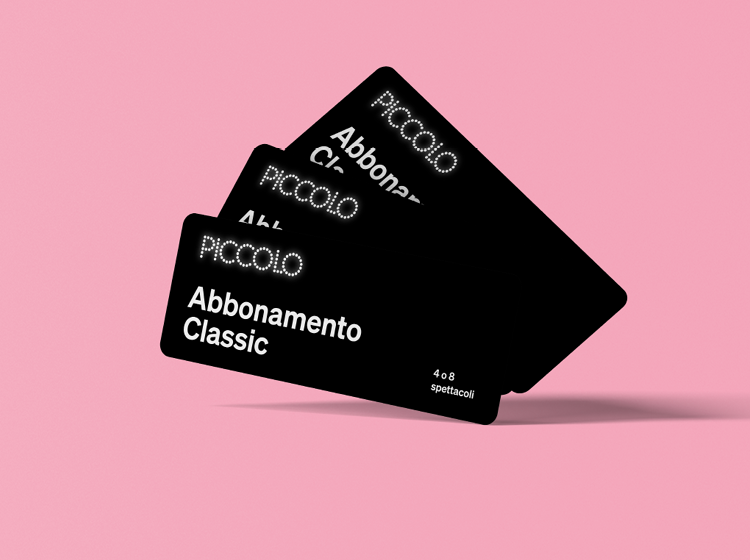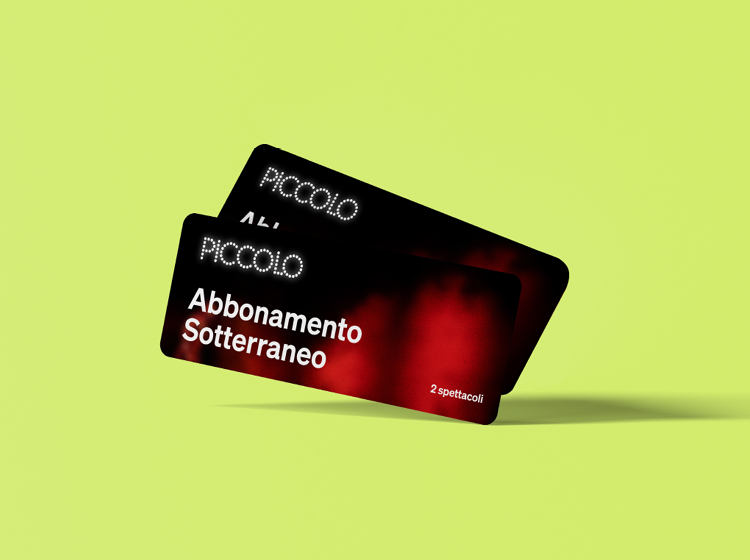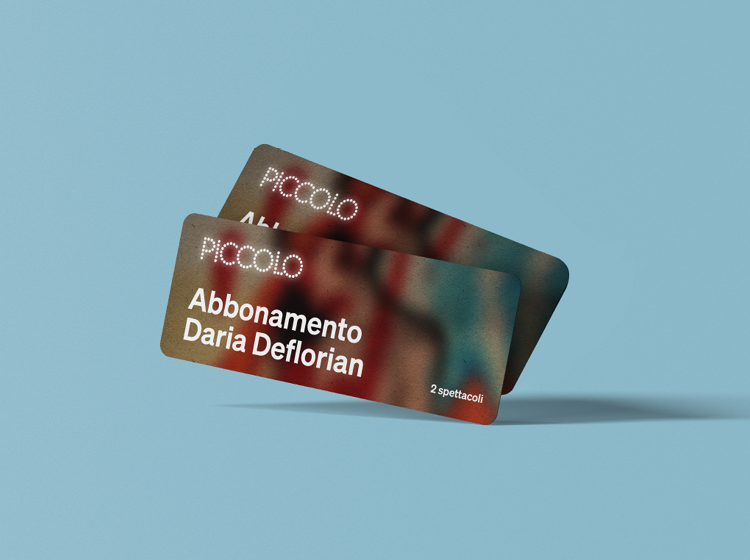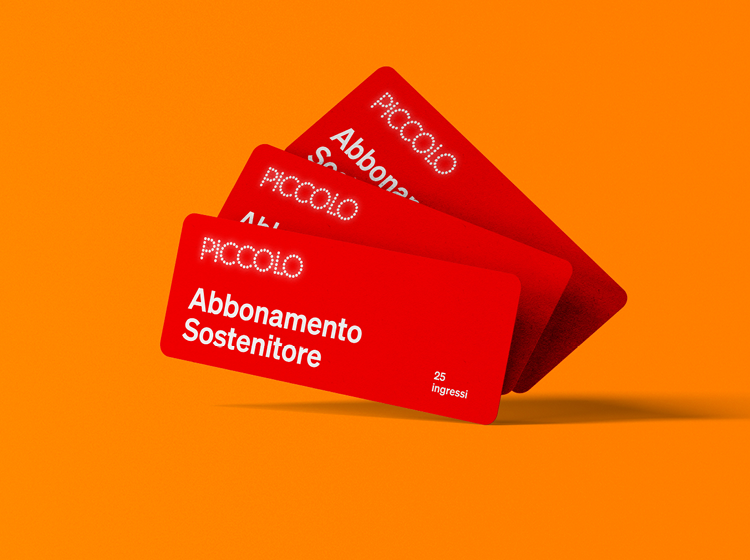Guida all’esplorazione tattile | Teatro Strehler: ingresso e foyer
Guida all’esplorazione tattile | Teatro Strehler: ingresso e foyer
Testo prova ENG
Testo prova ENG
Testo prova ENG
Testo prova ENG
Testo prova ENG
Testo prova ENG
Testo prova ENG
Testo prova ENG
Testo prova ENG

Teatro Grassi
Via Rovello 2, Milan
Tram lines 1, 2, 12, 14, 16, 19 – M1 Metro Station Cordusio, M1 Metro Station Cairoli
Teatro Strehler
Largo Greppi 1, Milan
Tram lines 2, 4, 12, 14 – Buses 57, 61 – M2 Metro Station Lanza
Scatola Magica c/o Teatro Strehler
Largo Greppi 1, Milan
Tram lines 2, 4, 12, 14 – Buses 57, 61 – M2 Metro Station Lanza
Teatro Studio Melato
Via Rivoli 6, Milan
Tram lines 2, 4, 12, 14 – Buses 57, 61 – M2 Metro Station Lanza
Chiostro Nina Vinchi
Via Rovello 2, Milan
Tram lines 1, 2, 12, 14, 16, 19 – M1 Metro Station Cordusio, M1 Metro Station Cairoli
Visit the page for the show you are interested in to see the times at which the individual performances begin.
The theatres open to audiences one hour before the start of the performance.
It is not possible to access the auditorium without a valid ticket or once the performance has started.
On-line on piccoloteatro.org
It is possible to purchase subscriptions, and full-price or discounted tickets.
Tickets can be purchased up to one hour before the beginning of scheduled performances.
Teatro Strehler box office
Largo Greppi 1, Milan
From Mondays to Saturdays 12.30PM–6PM
Closed on Sundays and public holidays
Payment can be made by credit card, Bancomat, Carta Cultura Giovani, Carta del Merito and Carta del Docente
The box offices for the three theatres are exclusively for the scheduled performance, from one hour before it is due to begin.
Box office line +39 02 21126116
From Mondays to Saturdays 12.30PM–6PM
Closed on Sundays and public holidays
Payment can be made by credit card, Carta Cultura Giovani, Carta del Merito and Carta del Docente
Purchased tickets cannot be cancelled or substituted or be used for dates or times which differ from those indicated.
PRODUCTIONS, CO-PRODUCTIONS AND INTERNATIONAL HOSTED SHOWS
Full price Stalls € 40 | Balcony € 32
Discounted (under 25 and over 65) Stalls € 23 | Balcony € 20
Discounted (2-12 years) Stalls and balcony € 15
HOSTED SHOWS
Full price Stalls € 33 | Balcony € 26
Discounted (under 25 and over 65) Stalls € 21 | Balcony € 18
Discounted (2-12 years) Stalls and balcony € 12
Discounted tickets for spectators under 12, under 26 or over 65 can be purchased either online or at the box office (a valid ID document must be shown).
Two types of subscription are available, for 4 or 8 shows, Classic and ORO.
There are also subscriptions available for groups and schools.
For information and the purchase of tickets and subscriptions for groups and schools, contact the Ufficio promozione pubblico e proposte culturali on +39 02 72333216 or write to promozione.pubblico@piccoloteatromilano.it.
Our spaces offer routes that are free of architectural barriers and are equipped with toilets for the disabled. The auditoriums have reserved spaces for spectators with visual, hearing or motor-related disabilities.
The stalls at the Teatro Strehler have been designed to offer a magnetic induction amplification service for hearing loss or deafness.
Carriers of a Disability Card have the right to a 50% discount on the full ticket price for programmed shows. Discover all information regarding discounts.
Each auditorium has a free cloakroom service and a bar.
The Chiostro Nina Vinchi, adjacent to the Teatro Grassi, contains the Piccolo Café & Restaurant, which is open from Mondays to Sundays at the following times: Mondays 8AM-8PM; from Tuesdays to Fridays 8AM-midnight; Saturdays 10AM-midnight; Sundays 10AM-8PM.
A card with a QR code for each show is available in the foyer, providing access to the Edizioni Piccolo Teatro App, which can be downloaded free of charge from the App Store and Google Play, and which contains all the show programmes, which are also available from our website on the pages dedicated to each individual show.
The three theatre foyers also each have a small bookshop managed by Libreria Antigone selling the books from our publishing house as well as a selection of books dedicated to the season’s shows (Bancomat and credit card accepted).
It is forbidden to consume food or drinks, or use mobile phones, during the performance.
Children under the age of 14 must be accompanied by an adult.
Initiatives and events can be organised in the venues and auditoriums in accordance with the show programme.
Discover all the information regarding your event at the Piccolo.
Discover all open positions.
Switchboard
02 723331
Box office line
02 21126116
Audience services
servizioalpubblico@piccoloteatromilano.it
Accessibility
accessibilita@piccoloteatromilano.it
Production and Organisation Department
produzione@piccoloteatromilano.it
Marketing and Communication Department
comunicazione@piccoloteatromilano.it
Ufficio promozione pubblico e proposte culturali
promozione.pubblico@piccoloteatromilano.it
Press Office
piccolo.stampa@piccoloteatromilano.it
Archive
archivio@piccoloteatromilano.it
Scuola di Teatro Luca Ronconi
scuola@piccoloteatromilano.it


Join a young, dynamic and passionate community. Discover our SUMMER PROMO.
Starting from €45
DISCOVER

Freely choose from all the shows of our season and come to the theatre in company. Discover our SUMMER PROMO.
Starting from €80
DISCOVER

Do not miss Piccolo productions and Italian and international co-productions.
Starting from €66
DISCOVER

Do not miss the shows of the Sotterraneo Special.
Full price €30
DISCOVER

Do not miss the shows of the Daria Deflorian Special.
Full price €30
DISCOVER

Choose to support us to continue enjoying spectacular experiences.
Starting from €3.000
DISCOVER
SUBSCRIPTIONS FOR SCHOOLS AND GROUPS
Do you want to purchase subscriptions dedicated to schools and groups?
Contact our Ufficio promozione pubblico e proposte culturali by calling 02 72333216 or writing to promozione.pubblico@piccoloteatromilano.it.